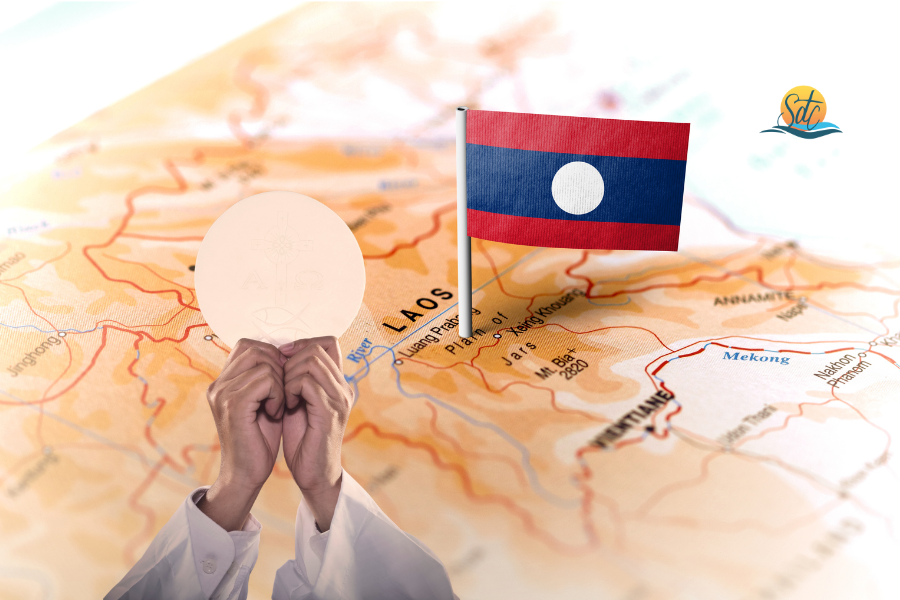The Director of the Pontifical Mission Societies of Laos and Cambodia, Father Paul Chatsirey Roeung, was interviewed by Fides Agency:
“The faithful of the small Catholic community in Laos have a fervent missionary spirit also because the future of the local Church is in their own hands: in fact, according to current regulations, there cannot be missionaries permanently resident in the country, but only for short periods.

It is therefore important for them to take care and care well for native vocations, to the priesthood as well as to consecrated life or of lay people such as catechists, in order to carry out the pastoral work. We offer all the necessary and possible support since we share the same bishops’ conference, that of the bishops of Laos and Cambodia.”
The priest, who regularly visits the community in Laos, tells Fides, “Pastoral life goes on peacefully in the ordinary. For larger gatherings or special initiatives there is a need to ask for permits from government authorities. And there are differences, from province to province, in these concessions, depending on local officials. The one in Laos is, despite the difficulties, a small community that has great hope and attracts young Laotian people.
For example, in the Minor Seminary, the propaedeutic year and the Major Seminary there are about 50 in all, including Laotian boys and young men (about 20 in the Minor Seminary, 10 in the propaedeutic year, 20 in the Major Seminary), which bodes well for the future. In any case, the Church is well aware that on its own mission and witness of faith depends its future. In the past months I experienced a spiritual retreat with the Laotian priests and I sensed in them a total trust in God: the Church entrusts itself and all its works to the Lord and God helps and sustains it.”
“The pastoral and missionary work,” notes Fr. Chatsirey Roeung, “goes on in small steps. There are catechists who flank the priests in going around the villages and administering the sacraments. Sometimes, given the needs, it is the catechist-missionaries who visit the territories on their own, giving a witness of faith and bringing the Gospel, sometimes baptizing. I would also like to note that, from the small and very poor Laotian community, we collected $1,000 on last World Mission Day: this is the small contribution to the Universal Solidarity Fund that also comes from poorer people, a gesture with deep meaning, an important sign of the missionary spirit that looks to the universal Church”.
The Lao People’s Democratic Republic is a socialist state. Once part of an ancient Hindu empire, today it has a Buddhist culture and a Buddhist-majority population of 7.5 million. The Catholic Church in Laos was originally part of the Apostolic Vicariate of Eastern Siam. There are currently four Apostolic Vicariates in Laos (Vientiane, Paksè, Luang Prabang, Savannakhet), with a total of about 60,000 Catholics throughout the country. Since the official recognition of the Catholic Church by the Laotian Front for National Development in 1979, relations between the Church and the government have gradually improved, even within the framework of religious freedom recognized by the 1991 Constitution, whereby Laos recognizes freedom of religion (the state officially recognizes four religions: Buddhism, Christianity, Islam, and the Bahai religion), with limitations set by law.
As of 2017, the small Church also has a cardinal, created by Pope Francis: he is Louis Marie Ling Mangkhanekhoun, Apostolic Vicar of Vientiane, now in his 80s.
(PA from Fides Agency 4/6/2024)






